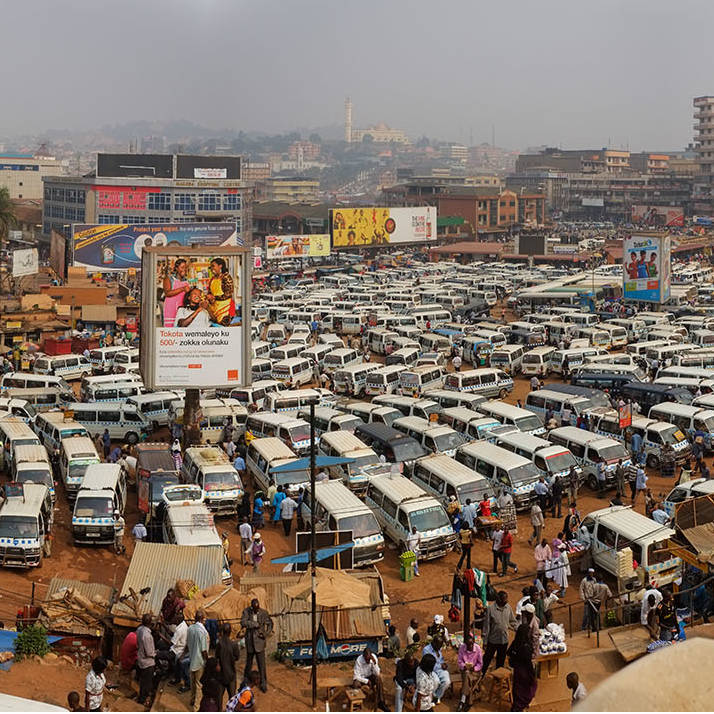Working on global inequality makes you ask yourself questions that you would never ask yourself, simply because they wouldn’t cross your mind. It’s like going from a two-dimensional world to a three-dimensional world: even the familiar suddenly seems unusual.
Take, for example, the economics of convergence. In the convergence-based growth theory, poorer countries tend to grow faster than the richest because they can use all the knowledge and innovations that the richer have already produced. In short, when you are at the technological front, you have to invent something new all the time and you can grow, say, at a rate of 1 or 1.5% per year. But when it is under the border, a poor country can imitate the rich and grow at a higher rate. (Of course, economists speak of “conditional convergence” because the theory assumes that all other factors, which in fact differ between rich and poor countries, are the same.) However, there is evidence of conditional convergence in studies. Reasons, it is seen as a good thing.
Now, when you look closely, one realizes that convergence is studied in terms of countries, but it is actually about the convergence of living standards between individuals. We say that a poorer country catches up with a richer country because we are so used to looking at the economy in terms of nation-states, and implicitly assuming that there is no movement of people between countries. But in reality, convergence is nothing more than a reduction in income inequality among all individuals in the world.
So what is the best way to achieve this reduction in inequality between people? Economic theory, common sense and simulation exercises clearly show that the best way to achieve this is by allowing free movement of people. Such a policy would increase world income (as any free movement of the factors of production should in principle), and reduce global poverty and inequality in the world. From a global perspective, it is not important that as a result, the convergence of countries is slowing down (as evidenced by some recent results of the European Union) because countries, as we have just seen, are not the relevant entities in the global economy: the relevant entities are individuals and their levels of well-being. If the incomes of the people are more equal, it is absolutely not important that the difference between the average incomes of A and B increases.
To understand this, consider familiar terms such as the nation-state: No one in their right mind would argue that the Appalachian population of the United States could not be allowed to move to California because the average Appalachian income could drop. In fact, average incomes can go down in both California and Appalachians, and inequalities can go up in both the Appalachians and California, and yet America’s global income will go up and America’s inequality will go up, and it will be lower.
The argument is the same for everyone: moving a highly skilled Nigerian to the United States can lower average Nigerian incomes (and can also lower average US incomes), and can also cause inequality, without however, it will be Global GDP is higher and global inequality will be lower. In short, the world would be a better place. Objections to immigration, which can lower average incomes in host countries, raised by Paul Collier in his book displacementIt is not relevant because the real object of our analysis is not the nation-state but the individual.
So far the argument seems totally unanswerable to me. But then things get more complicated. Taking this reasoning even further, and using the results of a Gallup poll that showed the percentage of people who would like to leave their countries, we find that in the case of unimpeded global migration, some countries could lose as much as 90% of their population. It can go away: all but a few thousand people will be leaving. Even the few who initially stayed will soon find their lives unbearable, especially since providing public goods to a very small number of the population can be very costly.
“Okay, so what?” You may ask yourself. If Chad, Liberia and Mauritania no longer exist because everyone wants to go to Italy and France, why should we worry? People have freely chosen to be better off in Italy and France, and that’s it. But then, it may be asked, does the disappearance of countries also mean the disappearance of different cultures, languages and religions? Yes, but if people don’t care about these cultures, languages, and religions, why should they be preserved?
The destruction of a variety of human traditions is not for free, and I can understand that there is someone who believes that preserving languages and cultures is as important as preserving the diversity of plants and animals in the world, but I wonder who should assume responsibility. the cost of it. Should the people of Mali be forced to live in Mali because someone in London believes that a certain type of human existence will be lost if everyone moves to London?
I’m not entirely insensitive to this argument, but I think it would be honest to say frankly that the cost of preserving this “world heritage” is not borne by those who theoretically defend it, but by those in Mali who can’t get out.
There is a clear trade-off between preserving the diversity of cultural traditions and the freedom of individuals to do what they want. I’d be happier if there were no tradeoffs, but it is. And if I had to choose between the two, I would choose human freedom even if it meant losing tradition. After all, is it worth preserving the traditions that no one cares about? The world has lost Markmans, Brethren, Sarmatians, Visigoths, Alans, Vandals, misers, and thousands more. They disappeared with the disappearance of their languages, cultures and traditions. Do we really miss them today?
Translation from the English Ricardo Duda.





